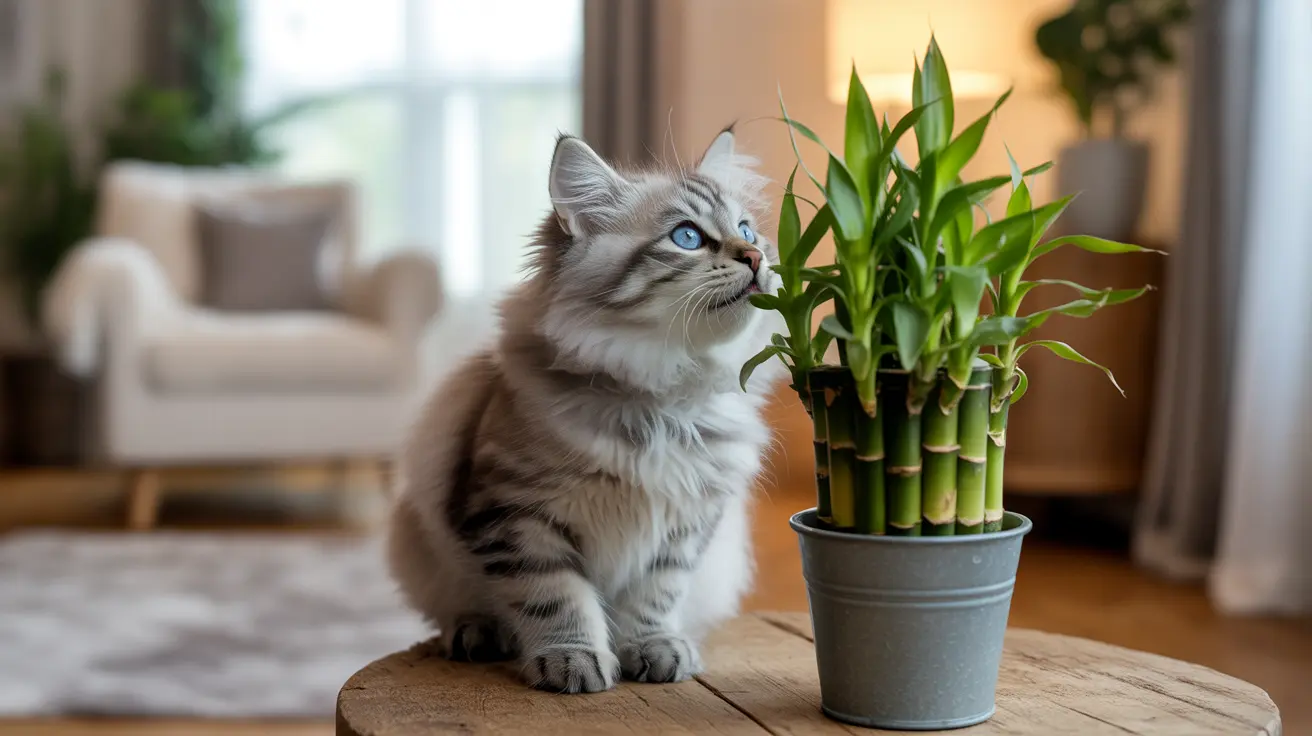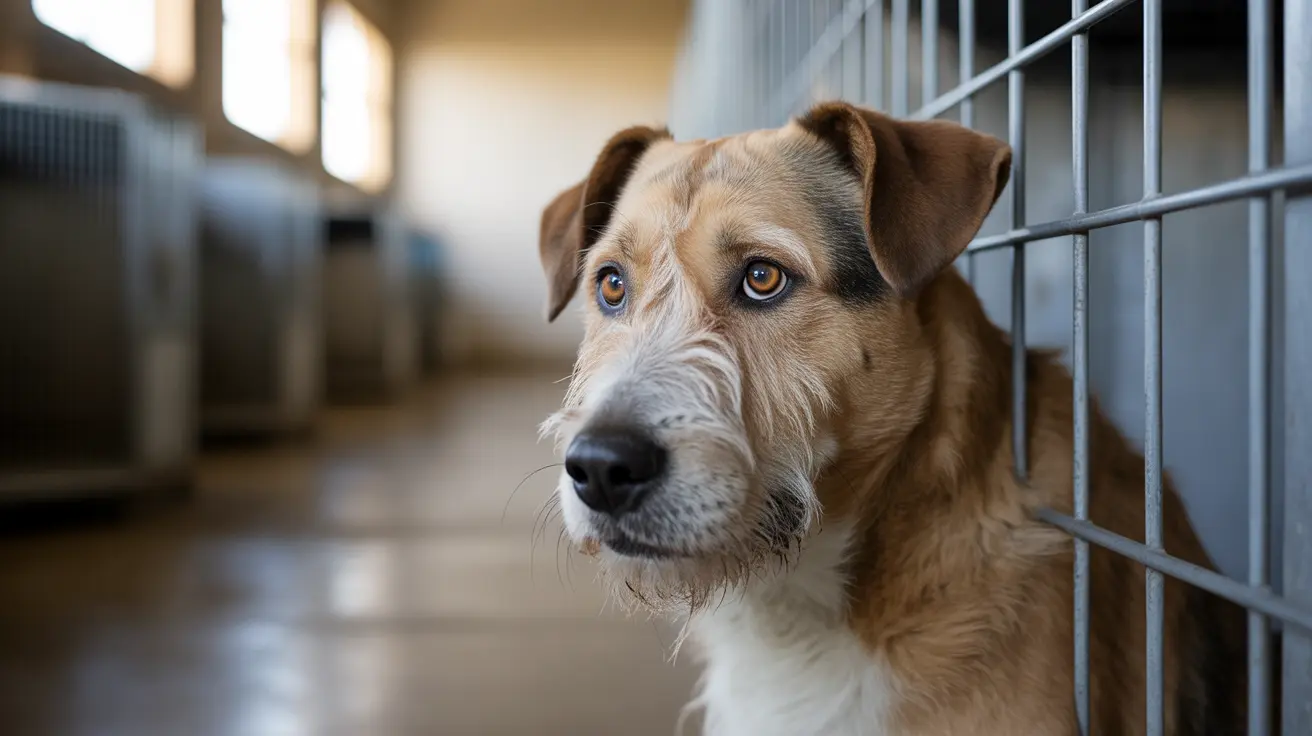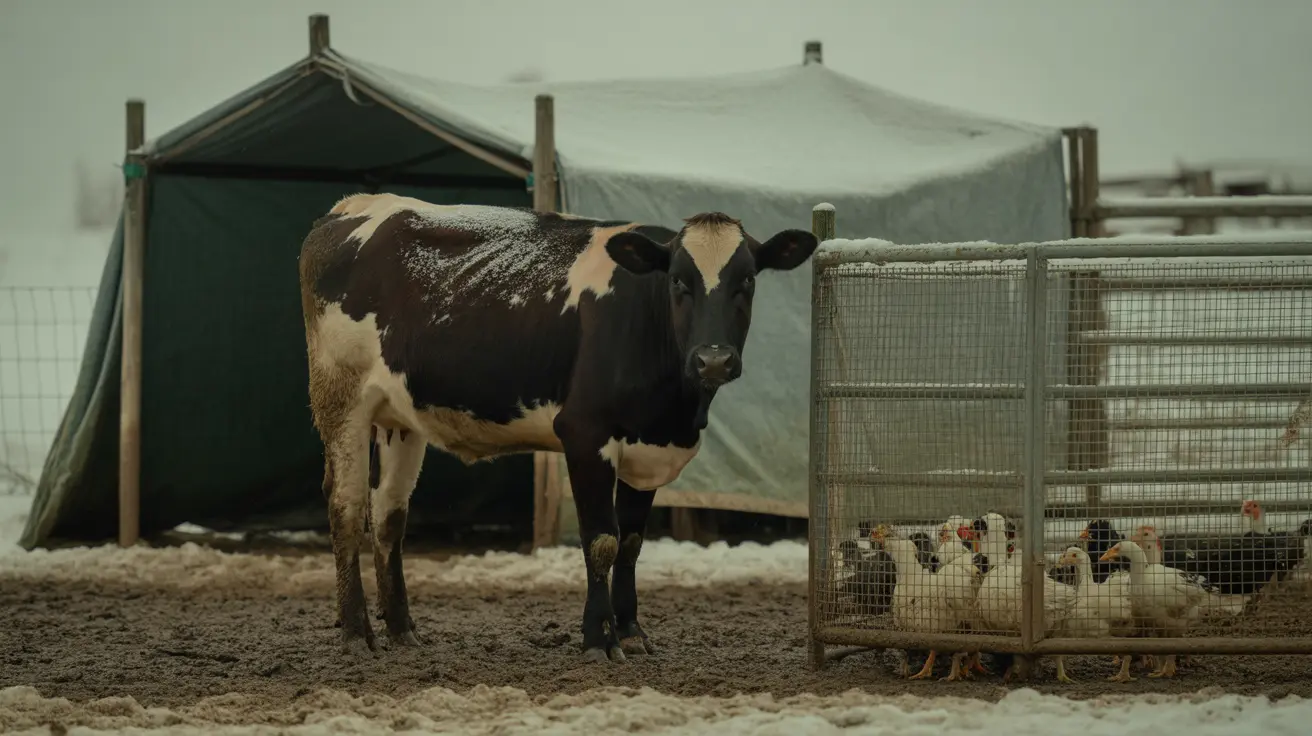As cat owners increasingly bring plants into their homes, understanding which varieties are safe for our feline friends becomes crucial. The question of bamboo's toxicity to cats is particularly important, as there's often confusion between true bamboo and its potentially dangerous look-alikes.
This comprehensive guide will help you understand the safety of different bamboo varieties, identify toxic imposters, and ensure your cat's wellbeing around these popular plants.
Understanding True Bamboo and Its Safety for Cats
True bamboo (family Gramineae) is not toxic to cats. This fast-growing grass species is completely safe for your feline companion, even if they decide to take an occasional nibble. Common varieties like Golden Bamboo (Phyllostachys aurea) and Fishpole Bamboo pose no threat to your cat's health.
In fact, true bamboo contains up to 22% protein content in its leaves, making it not just safe but potentially nutritious. However, while non-toxic, excessive consumption might cause mild digestive upset due to its fiber content rather than any harmful compounds.
Dangerous Look-Alikes: Lucky Bamboo and Heavenly Bamboo
The real danger lies in plants that resemble bamboo but aren't actually related to it. Lucky Bamboo (Dracaena sanderiana) and Heavenly Bamboo (Nandina domestica) are both toxic to cats despite their misleading names.
Lucky Bamboo Toxicity
Lucky Bamboo contains compounds that can cause severe reactions in cats, including:
- Vomiting
- Diarrhea
- Excessive drooling
- Weakness
- Dilated pupils
- Depression
Heavenly Bamboo Dangers
Heavenly Bamboo (also called Sacred Bamboo) is particularly dangerous, containing cyanogenic glycosides that can release cyanide when ingested. Symptoms of poisoning include:
- Difficulty breathing
- Bright red gums
- Shock
- Potential death if left untreated
How to Identify Safe vs. Toxic Bamboo
True bamboo can be identified by:
- Hollow, jointed stalks
- Grass-like leaves
- Multiple stems growing from the ground
- Woody texture
Toxic look-alikes typically have:
- Single stalks (Lucky Bamboo)
- Bright red berries (Heavenly Bamboo)
- Broader, less grass-like leaves
- Different growth patterns
Protecting Your Cat from Toxic Plants
Take these preventive measures to keep your cat safe:
- Verify plant species before purchasing
- Keep toxic varieties out of your home
- Use pet-safe fertilizers
- Create barriers around plants if necessary
- Monitor your cat's behavior around plants
Emergency Care for Plant Poisoning
If you suspect your cat has ingested toxic bamboo varieties, take immediate action:
- Contact your veterinarian or pet poison control
- Collect a sample of the plant for identification
- Monitor your cat's symptoms
- Follow professional medical advice promptly
Frequently Asked Questions
Is true bamboo safe for cats to chew or eat?
Yes, true bamboo is non-toxic to cats. While excessive consumption might cause mild digestive upset due to fiber content, it poses no serious health risks.
What are the differences between true bamboo and lucky bamboo for cats' safety?
True bamboo is a grass family plant that's completely safe for cats. Lucky bamboo, despite its name, is actually a Dracaena species that's toxic to cats and can cause severe symptoms if ingested.
Can cats get sick from eating lucky bamboo or heavenly bamboo plants?
Yes, both lucky bamboo and heavenly bamboo are toxic to cats. Lucky bamboo can cause vomiting and neurological symptoms, while heavenly bamboo contains compounds that can release cyanide when ingested.
How can I tell if my bamboo plant is toxic to my cat?
True bamboo has hollow, jointed stalks with grass-like leaves. Lucky bamboo typically has single stalks and is often grown in water, while heavenly bamboo has distinctive red berries and compound leaves.
What should I do if my cat eats a toxic bamboo look-alike like sacred bamboo?
Immediately contact your veterinarian or the ASPCA Poison Control Center. Collect a sample of the plant for identification, and monitor your cat for symptoms like vomiting, difficulty breathing, or unusual behavior.
Remember, when it comes to your cat's safety, it's better to err on the side of caution. If you're unsure about a plant's identity or safety, consult with a veterinarian or certified plant expert before bringing it into your home.






